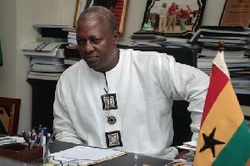 Talking to a friend yesterday about how our energy exists in our words after we’re gone, made me reconsider my responsibility as a poet. It reminded me of something I often forget, that what we experience is important, not only as fodder for poems, but for others who may need to hear what we have to say. Whether our poems are about love or abuse, political unrest or cultural renewal, our thoughts and the driving emotions behind them are significant. I had another blog post partially written, but the news from Nairobi, Kenya, another horrific hostage situation, dozens of people shot and killed, continued to distress me, and I was compelled to change my topic. I turned the news on this morning to find out more information, this is the third day in this unfolding tragedy, and nothing about the hostage situation was mentioned. If I’d stayed with CNN or one of the morning shows, I'm sure they would have eventually reported the current situation. Apparently it was already old news, and more telling, it had nothing to do with America. Here, in the land of constant denial, mornings are for reporting on celebrity singers and television awards, cooking tips and celebrity gossip. The superficial and sensational often trumping depth in our television reporting. As I often do, I turned to the Internet for hard news, and found a comprehensive report about the attack on the BBC site. The report mentioned that one of the fallen was the poet and political activist, Kofi Awoonor, who was attending a literary festival in Nairobi. I know little of this man, only that in recent years his writing has given way to political activism. I wonder if he was a hopeful man, if he died believing individuals can make a difference. I recall other poets, Lorca, Neruda, Akhmatova, whose lives (and deaths) were defined by the times they lived in, the countries they inhabited. This brings me full-circle to the conversation with my friend, how our poems are important, not only as legacy, but as witness. As grace. We are living in an unusually chaotic period, and what if the poets are being asked to step forward, to bend history, to become witnesses through our liminal experience of life? What if the hope hinted at in Awoonor's poem, "Across a New Dawn," is real and still possible? What if we are being asked to carry that hope forward? What if I am being asked? What if you are being asked? * Master, if you can be the oarsman for our boat please do it, do it. I asked you before once upon a shore at home, where the seafront has narrowed to the brief space of childhood We welcome the travelers come home on the new boat fresh from the upright tree --from the poem, "Across a New Dawn," by Kofi Awoonor --poem in its entirety: http://blogs.wsj.com/speakeasy/2013/09/22/read-one-of-kofi-awoonors-final-poems/ --related posts: http://bookhaven.stanford.edu/2013/09/the-face-of-a-massacre-eminent-poet-and-diplomat-kofi-awoonor-is-killed/ http://www.theguardian.com/books/booksblog/2010/dec/15/poetry-protest-politics
0 Comments
|
Archives
October 2022
AuthorMy writing often deals with the environment, my poetry filled with allusions to natural and man-made disasters. I have unlimited hope though; there is just too much wonder in this world to become a defeatist. To quote Margaret J. Wheatley, '"Hopelessness has surprised me with patience." Categories |
 RSS Feed
RSS Feed
